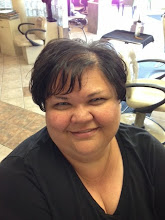In the midst of preparing things at work for a substitute to come in, I have also been trying to read up on the things I will need to do leading up to the surgery and afterwards. During the six months of pre-op classes, Kaiser prepared us very well. I must say, being on the other side of the experience, I am grateful they were so thorough. Before starting the classes, I really had a hard time with the fact that I would be required to attend six months of classes. I felt like I had made the decision so let's get on with surgery already. Yet, they touched on so many issues to help prepare patients like me for a different lifestyle. This is, by far, not an "easy way out", as some believe it is who judge from the outside looking in. In fact, our facilitator of the group told us several times this is a more difficult journey, yet one that will give us a better quality of life. I am also taking in the information the surgeon's office has given me. At the consultation, I was handed a CD with a file on guidelines leading up to the surgery and afterwards. This document has a lot of very good information, but it is a lot to take in when I couple it with the information given to me from Kaiser.
Not all of the advice from Kaiser coincides with that from Pacific Bariatric, my surgeon's office, and vice versa. For example, Kaiser advises us to choose clear liquid protein supplements the first three days after returning home from surgery, such as Isopure Perfect Zero Carb or Syntrax Nectar Whey. However, the surgeon's office states we should have clear liquids and a liquid protein supplement, but a clear liquid protein supplement is not necessarily stated outright. So, do I stick with a clear liquid protein supplement or just a regular one? I have decided that for those first three days, I will go ahead and get some ready-made clear Isopure so that I'm satisfying both recommendations. When I was going through the classes at Kaiser, I remember being told that the surgeon's office wasn't going to give us much information, but I wonder now if they just didn't know what we were going to be given. Kaiser is heavily involved up to the point where we meet with the surgeon and then they step back, working in conjunction with Pacific Bariatric but allowing those doctors to take primary lead.
Regardless, it is a huge amount of information from both sides. Being the detail-oriented person I am (yeah, alright, anal retentive to some degree), I'm doing the best I can at studying everything. I feel like I'm back in school and I'll be tested before I can be released from the hospital.
How long do you have to be on clear liquids?
When can you eat chicken again ?
Are you allowed to drink caffeine?
How often do you have to take your vitamins and calcium?
Why can't you chew gum?
How long is it before you can start eating fruit?
Oh my gosh, there are so many rules! Obviously I don't want to make mistakes when it comes to things I need to be doing to take care of my body after surgery, so I need to know this well. Thankfully I am not traveling this road alone. My classmates and I have been very good friends and we're all supporting each other routinely. I lean on them so much to keep me grounded. I also have an incredible support system among my family, friends, co-workers, therapist and, of course, all of you. Between this blog, Twitter, Facebook gastric bypass groups and Instagram, I have a huge community of support. I am incredibly blessed to know God is taking such good care of me and arming me with all the tools and resources I need on this journey. Even with the information overload, I'm still doing well. I'm looking forward to the surgery and the much improved health afterwards. As I sit here and write this, my back and leg are in pain, yet it calms me to know that perhaps very soon into the future, I will start feeling less pain as the weight (I pray) continues to come off. I'm really looking forward to that.

0 comments:
Post a Comment